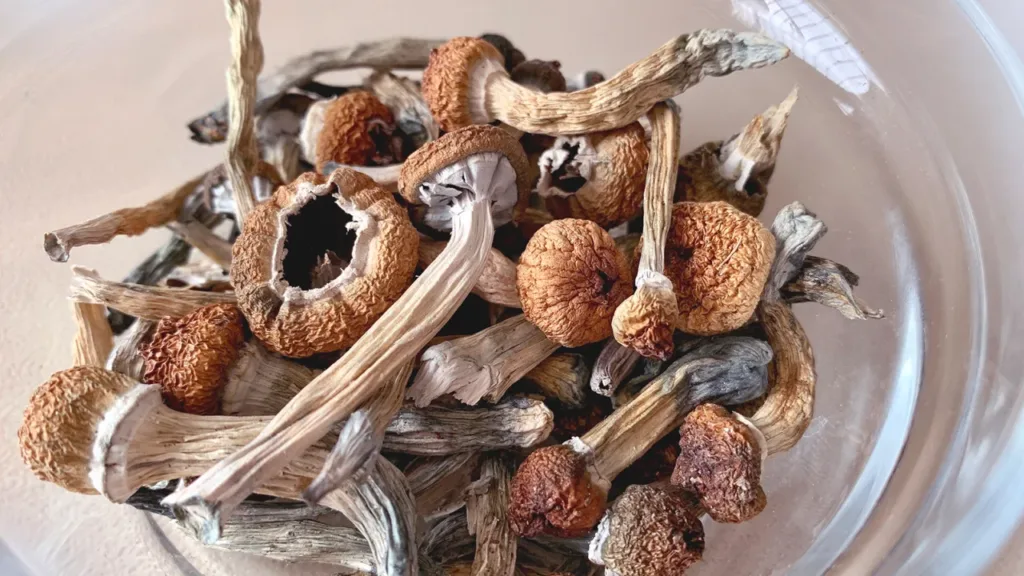Researchers from the University of Zurich have published groundbreaking findings on the effects of psilocybin on emotional learning.

Dried psilocybin mushrooms. (Photo credit: Rich Townsend/Getty Images).
The study, featured in iScience and available through the National Library of Medicine, sheds light on how psilocybin could be utilized in the treatment of psychiatric disorders and its potential role in psychedelic-assisted psychotherapy.
The study is the first to investigate reinforcement learning with psilocybin. Researchers designed a probabilistic cue-reward task that involved presenting emotional cues—neutral or fearful faces—to participants. These faces were shown either consciously or subconsciously to analyze how psilocybin impacts learning processes when interacting with emotional stimuli.
Across different dosages, psilocybin preserved learning effects and performed statistically on par with placebo, suggesting that psilocybin does not hinder reinforcement learning. Participants exhibited higher exploratory behavior under psilocybin, indicating a potential for enhanced cognitive flexibility. Notably, the 20 mg psilocybin group demonstrated significantly better learning rates compared to the placebo group, highlighting a dosage-dependent effect on cognitive performance.
The study also found that psilocybin resulted in inferior learning outcomes with subconscious cues but showed improved results with conscious neutral cues in specific conditions. This indicates that the context of emotional cue presentation plays a crucial role in learning efficacy under psilocybin.
Researchers say these findings are significant for the future of psychedelic therapy. By showing that psilocybin can preserve and even enhance learning in certain contexts, the study supports the potential use of psilocybin in therapeutic settings. The ability to modulate serotonin signaling in the brain with psilocybin could lead to innovative treatments for psychiatric disorders, offering new hope for patients.
The study’s full abstract can be found below. You can find the full text of the study by clicking here.
Serotonergic psychedelics hold promise as a treatment modality for various psychiatric disorders and are currently applied in psychedelic-assisted psychotherapy. We investigated the learning effects of the serotonin receptor agonist psilocybin in a probabilistic cue-reward task with emotional cues in the form of neutral or fearful faces, presented either consciously or subconsciously. This study represents the first investigation into reinforcement learning with psilocybin. Across different dosages, psilocybin preserved learning effects and was statistically noninferior compared to placebo, while suggesting a higher exploratory behavior. Notably, the 20 mg group exhibited significantly better learning rates against the placebo group. Psilocybin induced inferior results with subconscious cues compared to placebo, and better results with conscious neutral cues in some conditions. These findings suggest that modulating serotonin signaling in the brain with psilocybin sufficiently preservers reinforcement learning.






